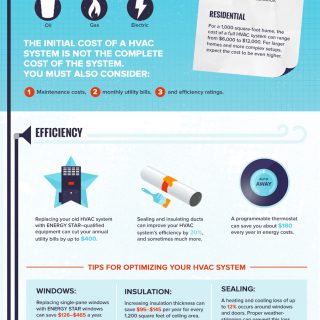Understanding The Impacts Of Weather Condition On Heat Pump Performance And How To Reduce Them
Understanding The Impacts Of Weather Condition On Heat Pump Performance And How To Reduce Them
Blog Article
Uploaded By-Pacheco Regan
When it involves your heat pump, weather plays an essential function in its performance. From freezing temperatures to sweltering heat, each aspect can influence just how effectively your system operates. Yet what can you do to deal with these weather-related difficulties and guarantee your heat pump is operating at its ideal? Stay tuned to find useful tips and approaches to maximize your heat pump's performance, regardless of the weather conditions it faces.
Weather Condition Aspects Impacting Heatpump Efficiency
Weather condition variables have a substantial impact on the effectiveness of heat pumps. One essential element is temperature level. Heatpump function by moving warm from outside to within throughout winter and vice versa in summer season. As temperatures decrease, it ends up being harder for the heat pump to essence heat from the outside air, decreasing its effectiveness.
Another crucial element is humidity. High humidity levels can make it much more difficult for the heatpump to release warm during the cooling procedure.
In addition, wind rate plays a role. Solid winds can dissipate the warm absorbed or launched by the heatpump, affecting its total efficiency.
Tips for Optimizing Heat Pump Efficiency
To boost the efficiency and longevity of your heat pump, applying a few key approaches can make a significant difference in its efficiency.
To start with, make sure regular maintenance by cleaning or replacing filters every 1-3 months to stop air flow obstructions and make best use of airflow. Furthermore, routine yearly specialist assessments to identify and attend to any kind of prospective issues early.
Optimal thermostat settings additionally play an important duty. During the wintertime, aim for a temperature setup that's as low as comfy, and throughout the summer, established it as high as comfy to reduce the work on your heatpump. Making use of a programmable thermostat can aid you instantly change setups based on your timetable.
In addition, sealing leaks in ductwork and protecting air ducts in unconditioned areas can avoid power loss and boost overall system performance.
Last but not least, think about installing a wise thermostat that can learn your routines and readjust setups as necessary, more optimizing your heatpump's efficiency. By complying with these ideas, you can guarantee your heat pump runs efficiently and efficiently throughout the year.
Best Practices for Weatherproofing Your Heatpump
For optimum efficiency and performance of your heatpump, applying weatherproofing actions is necessary. Start by sealing any spaces or splits around doors, windows, and ductwork to stop warm loss and maintain a consistent indoor temperature level.
Shield exposed pipelines and air ducts to stop cold throughout winter and guarantee appropriate airflow. Take into consideration setting up a safety cover over the outdoor device to shield it from severe weather aspects like snow, ice, and particles.
On a regular basis tidy the outdoor unit to get rid of dust, leaves, and particles that can block air flow and reduce performance. Additionally, maintain the area around the heat pump free from snow, ice, and plant life to permit correct ventilation.
linked web site
Since you recognize how weather condition affects your heat pump efficiency, you can take positive actions to optimize its efficiency. By complying with the tips outlined in this write-up, such as normal maintenance, thermostat modifications, and weatherproofing procedures, you can make sure that your heat pump operates at its finest regardless of the weather conditions. Stay successful and maintain your home comfortable throughout the year.
